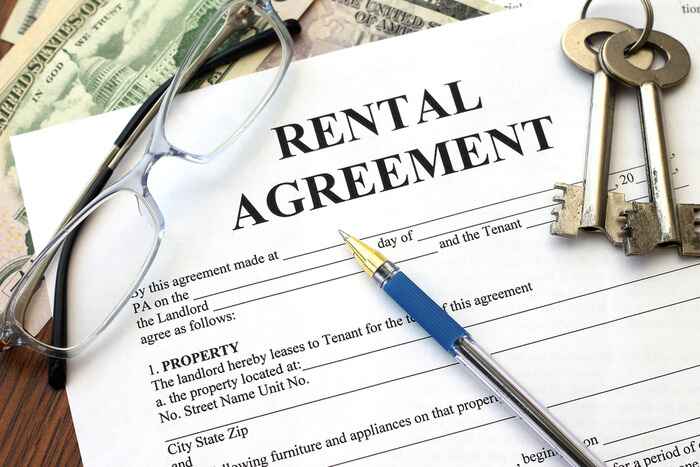Renting out your property, whether it’s a four-bed home or beautifully designed apartment, can be a daunting yet profitable venture, providing you with a steady income stream and long-term investment potential. However, it also requires careful planning and decision-making so that you can enjoy a smooth and successful rental experience. Here are the key twelve decisions you need to make before renting out your property.
1. Getting an Estate Agent to Help You
Engaging an estate agent can be a wise decision when renting out your property, especially if you lack the time or expertise to manage the process yourself. Estate agents at suttonkersh.co.uk, in particular, offer professional services that can streamline the rental process and ensure a positive experience for both you and your tenants.
Consider the following factors to ensure you find the right estate agent for your needs. Look for one with a proven track record in renting properties similar to yours. Ask for references from past clients and look for online reviews to gauge their reputation. Furthermore, choose an agent who specializes in your local market and understands its nuances.
Benefits of Using an Estate Agent
- Market Knowledge and Pricing
- Accurate Pricing: Estate agents have a deep understanding of the local market and can help you set a competitive rental rate. They use market data and insights to ensure your property is priced appropriately to attract high-quality tenants while maximizing your income.
- Market Trends: Agents stay up to date with market trends, ensuring your property remains competitive and appealing to potential renters.
- Effective Marketing
- Professional Listings: Estate agents create compelling property listings with high-quality photos and descriptions that highlight your property’s best features.
- Wider Reach: They have access to multiple listing platforms and a network of potential tenants, increasing the visibility of your property and reducing the time it stays vacant.
- Handling Legal and Administrative Tasks
- Lease Agreements: Agents draft and manage lease agreements, ensuring all legal requirements are met correctly and protect your interests.
- Legal Compliance: They keep you informed about and ensure compliance with landlord-tenant laws, reducing the risk of legal disputes.
2. Determine the Rental Rate
Setting the right rental rate is crucial. You’ll want a rate that attracts tenants while maximizing your return on investment. To determine a fair rental rate:
Look into the Current Market: Look at similar properties in your area to see what they’re renting for.
Consider Property Features: Take into account the size, condition, and amenities of your property.
Factor in Expenses: Calculate your monthly expenses, including mortgage payments, property taxes, insurance, and maintenance costs, to ensure the rent covers these expenses and provides a profit.
3. Decide on Furnished vs. Unfurnished
Renting your property furnished or unfurnished depends on your target market and personal circumstances.
Furnished: Appeals to short-term renters or those who need a temporary home. It may enable you to charge higher rent but could lead to more frequent tenant turnover.
Unfurnished: Attracts long-term renters who have their own furniture. This option usually involves less maintenance and lower initial costs.
4. Understand Legal Requirements and Regulations
Familiarize yourself with local, state, and federal laws governing rental properties.
Landlord-Tenant Laws: Understand your responsibilities and rights as a landlord, including rules about security deposits, eviction procedures, and property maintenance.
Permits and Licenses: Check if you need any specific licenses to operate a rental property.
Fair Housing Laws: Ensure you comply with fair housing regulations to avoid discrimination claims.
5. Draft a Comprehensive Lease Agreement
A well-drafted lease agreement will successfully protect both you and your tenants. It should include:
Lease Term: Define the duration of the lease agreement, whether it’s month to month, six months, or a year.
Rent Details: Clearly state the rent amount, due date, and accepted payment methods.
Security Deposit: Specify the amount, usage conditions, and refund process.
Maintenance and Repairs: Figure out who’s responsible for what, including routine maintenance and emergency repairs.
Rules and Regulations: Include policies on pets, smoking, subletting, and noise.
6. Screen Potential Tenants Thoroughly
Selecting the right tenants is critical for a smooth rental experience.
Background Checks: Undertake background checks, including credit, criminal, and eviction history.
Employment Verification: Make sure the tenant has a stable job and sufficient income.
References: Contact previous landlords for references to understand the tenant’s rental history.
7. Decide on Property Management
Do you want to manage the property yourself or hire a professional property management company?
Self-Management: Offers more control and saves money but requires time and effort to handle tenant issues, maintenance, and legal compliance.
Property Management Company: They handle all aspects of property management, including finding tenants, maintenance, and rent collection, but charge a fee, typically around 8–12% of the monthly rent.
8. Decide on a Maintenance and Repairs Schedule
Keeping on top of all maintenance needs is crucial for keeping your property in good condition and retaining tenants.
Routine Maintenance: Schedule regular inspections and upkeep for plumbing, HVAC systems, and electrical systems.
Emergency Repairs: Have a plan for handling emergencies promptly. Consider setting aside a portion of rental income for unexpected repairs.
9. Get the Right Insurance
Protect your investment with the right insurance.
Landlord Insurance: Provides coverage for property damage, liability, and loss of rental income.
Tenant Insurance Requirement: Consider requiring tenants to have renters insurance to cover their personal belongings and potential liability.
10. Prepare the Property for Tenants
Ensure your property is clean, safe, and attractive to potential renters.
Deep Cleaning: Thoroughly clean the entire property, including carpets, windows, and appliances.
Repairs and Upgrades: Fix any issues and consider making upgrades that will attract tenants, such as fresh paint or updated fixtures.
Safety Checks: Ensure all safety devices, such as smoke detectors and carbon monoxide detectors, are functioning properly.
11. Decide on Pet Policy
Determine whether you’ll allow pets and under what conditions.
Pet-Friendly: Allowing pets can widen your pool of potential tenants, but may lead to additional wear and tear.
Pet Restrictions: If you allow pets, decide on breed or size restrictions and whether to charge a pet deposit or additional rent.
12. Establish a Marketing Strategy
Effective marketing is key to finding the right tenants quickly.
Online Listings: Use popular rental websites and social media to advertise your property.
Professional Photos: High-quality photos can make your listing stand out.
Open Houses: Consider hosting open houses to attract potential tenants.
Conclusion
Renting out your property involves several critical decisions that can impact your success as a landlord. By setting the right rental rate, understanding legal requirements, drafting a comprehensive lease, screening tenants, and planning for maintenance and repairs, you can create a positive rental experience for both you and your tenants. Careful preparation and thoughtful decision-making will help to ensure that your property remains a valuable and profitable investment.











Leave a Review